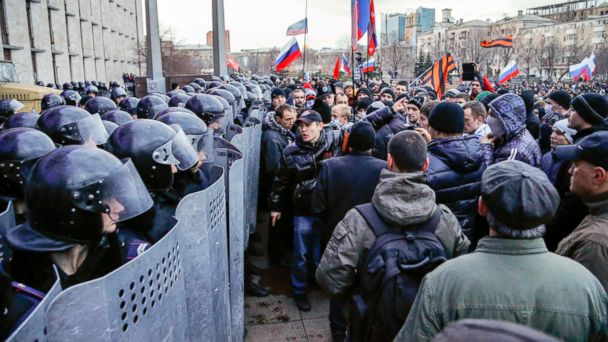Following Vote, Change Slowly Comes to Crimea

Credit: Andrey Basevich/AP Photo
Simferopol, Crimea - For a place that switched countries overnight, Crimea has been impressively calm with no real notable changes that match the geopolitical significance.
After celebrations over Sunday's referendum died down, life appeared to return normal - people out walking around in the spring weather, children going to school. Even the intimidating Cossacks who had been guarding buildings around town have disappeared.
The fact is, Crimea has been all but a part of Russia for the past two weeks (and many would say a lot longer); the Russian flag fluttering atop local government buildings.
Now that it's official, authorities are eager to quickly bring Crimea in line with Moscow. So for starters, Crimea will adopt Moscow standard time on March 30 - moving its clocks ahead two hours. The Russian ruble will join the Ukrainian hryvnia as the local currency until the latter is phased out by the end of 2015.
This morning, workers stood atop scaffolding changing the lettering on the parliament for the second time in two weeks, evidence of Crimea's fluctuating status of late.